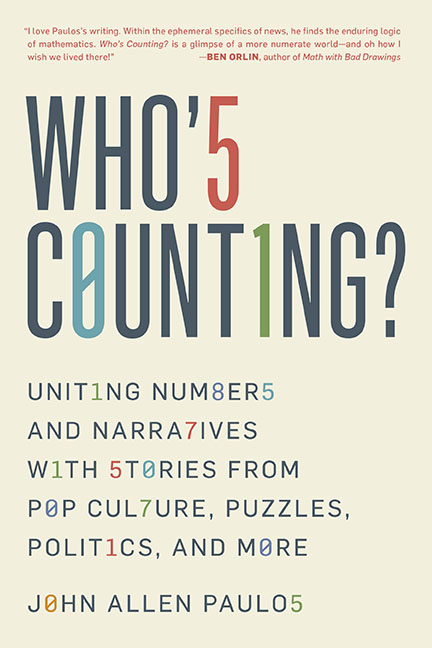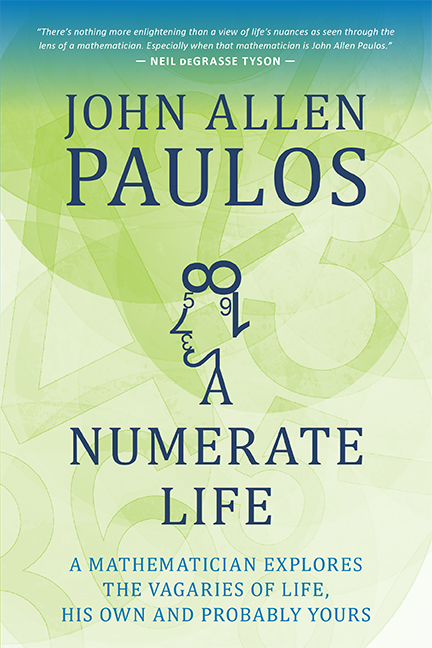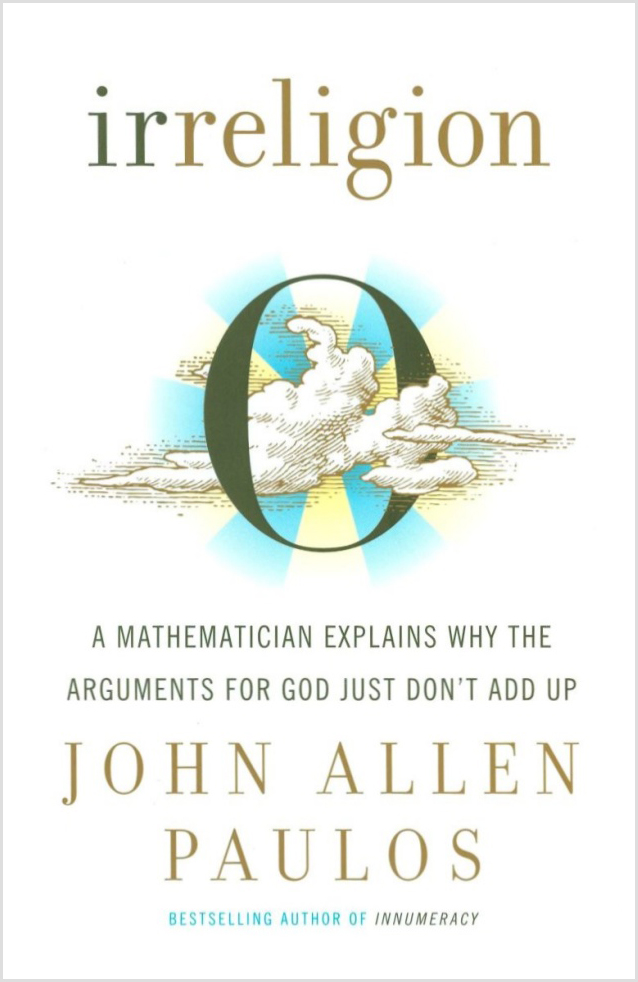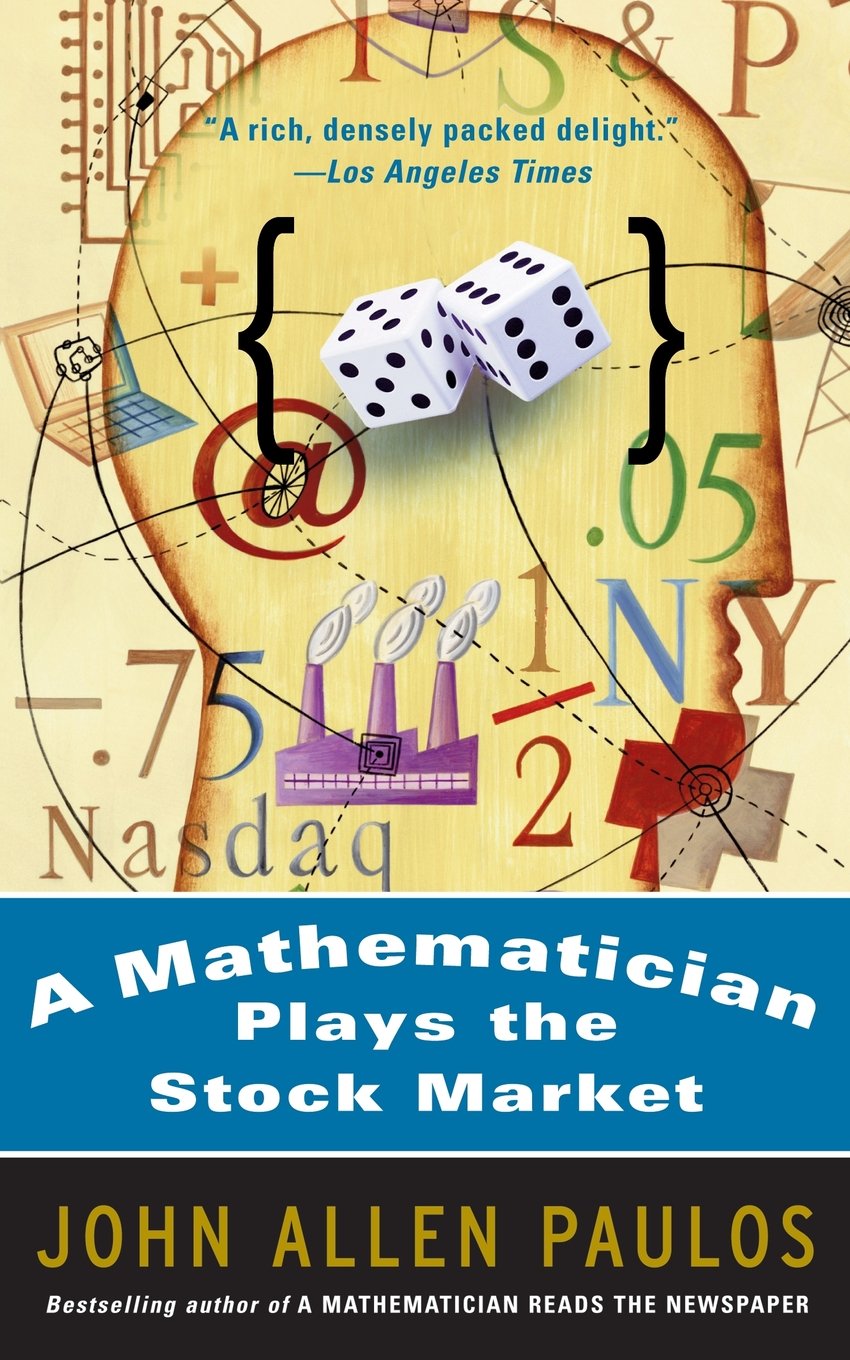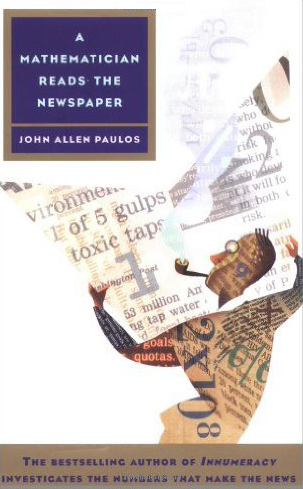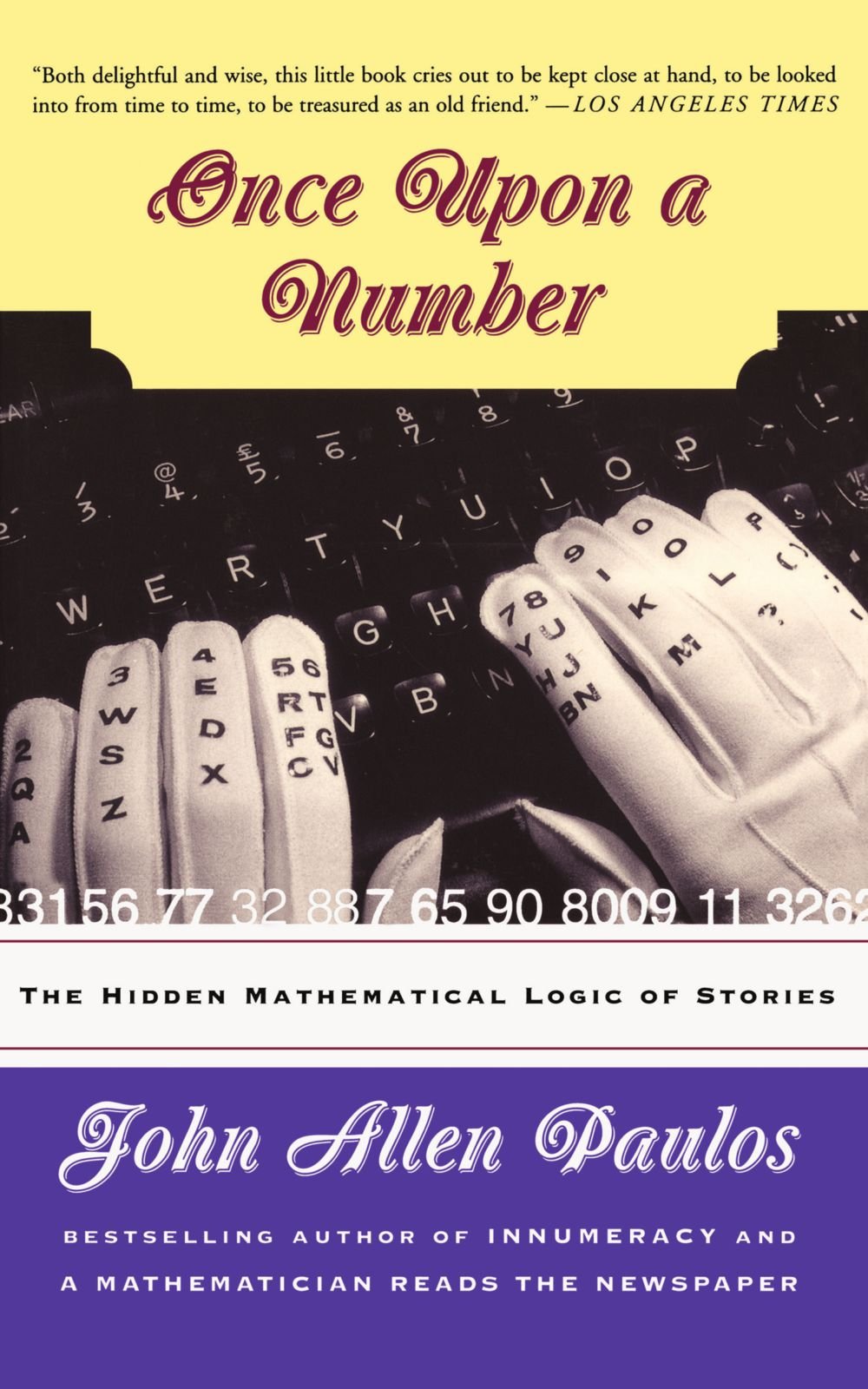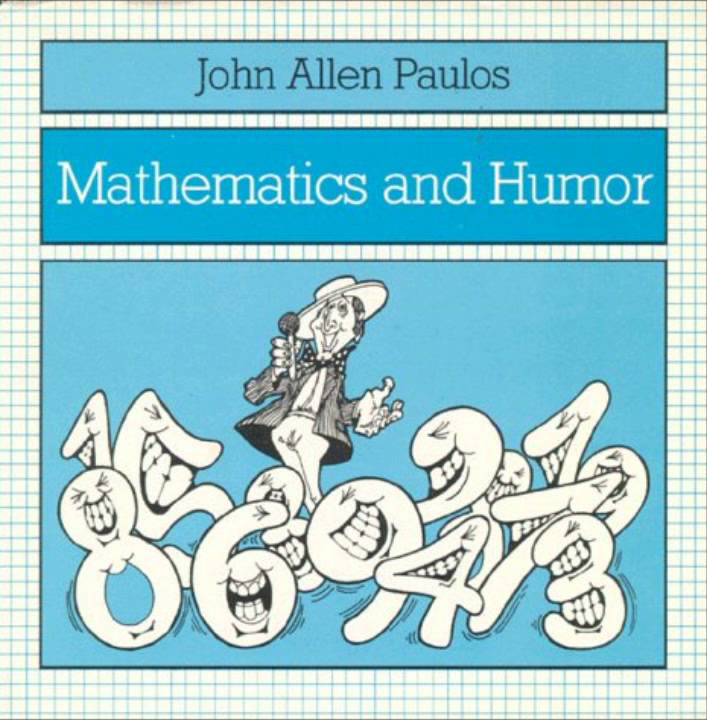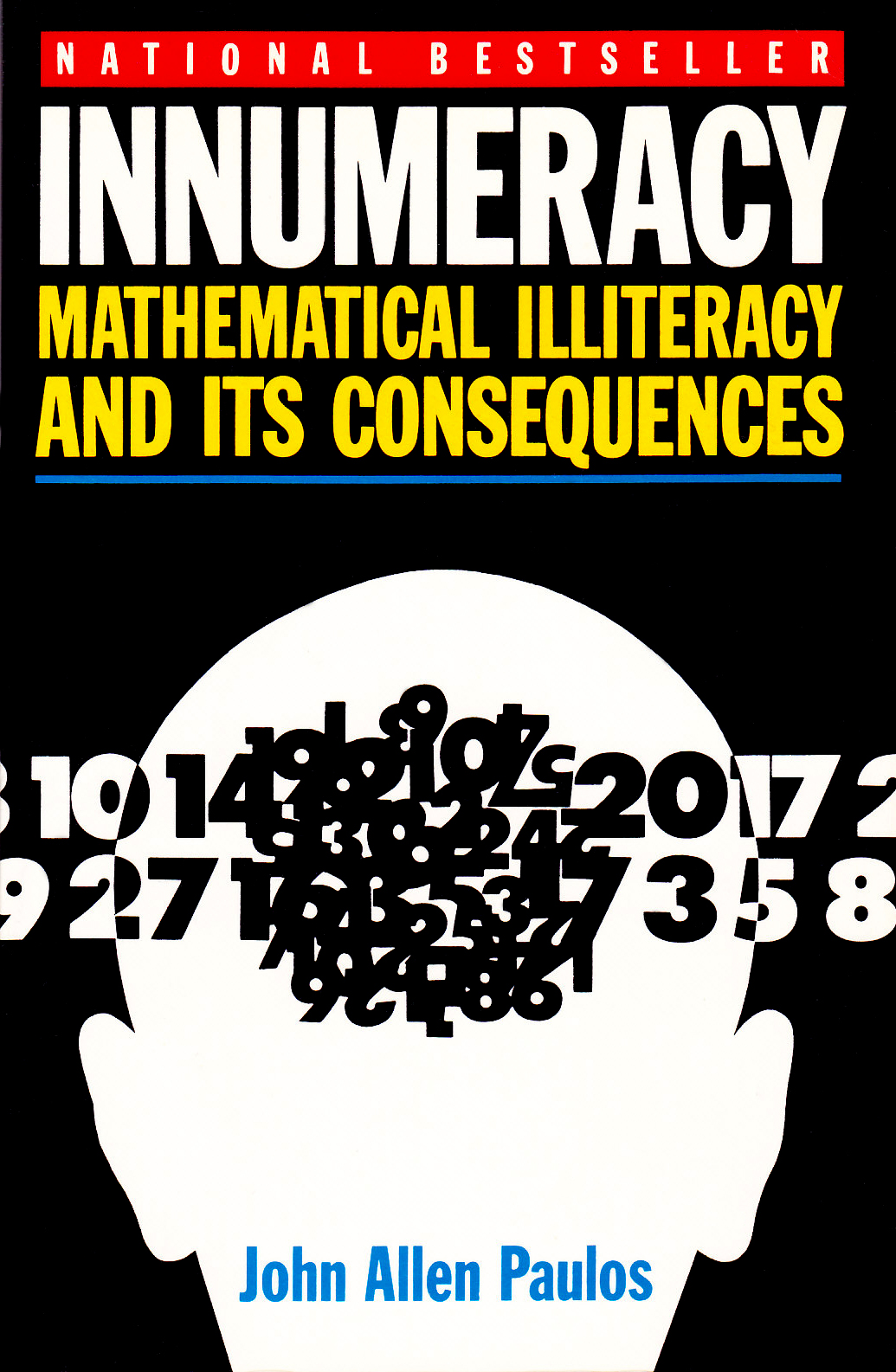
Innumeracy
Mathematical Illiteracy and Its Consequences- Farrar, Straus, and Giroux (Hill and Wang division) 1989
- Vintage paper, 1990
- French, Italian, German, British, Japanese, Spanish, Korean, Chinese, Greek, Hebrew, Dutch, Finnish, Portuguese, Danish, Polish and Swedish translations, 1990-1997
- New Farrar-Straus edition, 2001
Innumeracy is an examination of some of the consequences in everyday life of mathematical illiteracy. These consequences - confused personal decisions, muddled governmental policies, even an increased susceptibility to pseudoscience - are not as visible as are those of illiteracy or general cultural ignorance. Unlike the latter failings, however, innumeracy often afflicts intelligent, well-educated people, the kind of people who can understand the most complicated of legal discussions, the most nuanced of emotional interchanges, but whose eyes glaze over at the mere mention of a number or a probability. Topics addressed include stock scams, parapsychological claims, medical testing, insurance frauds, sports records, sex discrimination, coincidences and chance encounters.
Reviews
"To combat [innumeracy] John Allen Paulos has concocted the perfect vaccine: this book, which is in many ways better than an entire high school math eductation! Our society would be unimaginably different if the average person truly understood the ideas in this marvelous and important book. It is probably hopelessly optimistic to dream this way, but I hope that Innumeracy might help launch a revolution in math education that would do for innumeracy what Sabin and Salk did for polio."
"This elegant survival manual is brief, witty, and full of practical applications."
"Like carrying on a conversation with an engaging, articulate math whiz who easily shifts from the profound to the funny."
"Paulos makes numbers, probability, and statistics perform like so many trained seals for the reader's entertainment and enlightenment."
"The innumerate will surely profit from this entertaining book."
"This admirable little book is only 135 pages long. You can read it in 2 hours. Chances are that they could be among the most enlightening and even profitable 120 minutes you ever spent."
"The world, as seen by Paulos, is less mysterious, yet somehow more elegant, less magical, yet more wonderful. So many apparently strange events do, in fact, become all the more magnificent in their not-so-fearful symmetry."
"He takes us a couple of steps closer to numeracy, and it is all in all an enlightening place to be."
"One wonders why no one ever explained it this way before."
"Innumeracy would improve the quality of thinking of virtually anyone."
